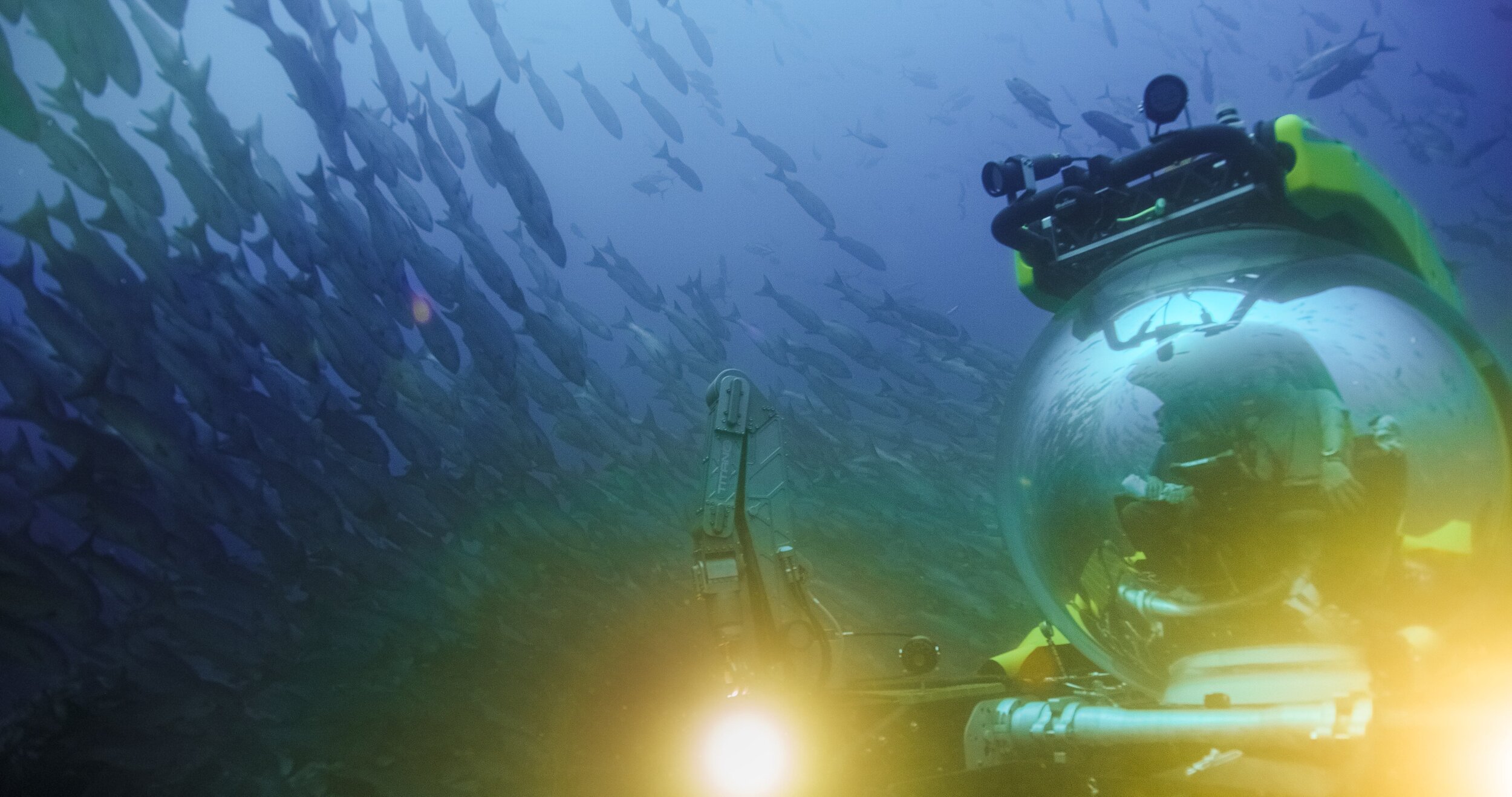Hedge Fund Titan, Chinese Billionaires Partner for the Oceans. Is More to Come?
/Didier Noirot, photo courtesy oceanx
Is it the yachts? The possibilities of those fathomless depths? Whatever the draw, billionaire captains of industry—particularly from tech and finance—have been increasingly putting their philanthropic muscle behind ocean conservation.
A new partnership between the charitable ventures of the two richest men in China and the founder of the world’s biggest hedge fund is the latest example. And while neither side is putting forward new money from their considerable piggy banks, the collaboration offers the tantalizing prospect of eliciting more Chinese support to protect the world’s oceans, whether from mega-donors or everyday givers.
On the surface, the multi-year alliance joins OceanX, an ocean exploration and media nonprofit, with the Paradise Foundation, a nature conservation organization. The former will produce videos about the wonders of the ocean depths, like their groundbreaking images of a giant squid in action, while the latter will bring those images to a Chinese audience through various platforms such as microblogging site Weibo and WeChat, one of Tencent’s social media services.
But the trio behind those organizations is perhaps more intriguing than the partnership itself. OceanX is backed by Ray Dalio, who co-chairs the $138 billion Bridgewater Associates, and who signed the Giving Pledge with his wife Barbara Dalio in 2011. The Paradise Foundation is co-chaired by Pony Ma, CEO of Tencent, Asia’s most valuable company, and Jack Ma, founder of e-commerce giant Alibaba.
The possibilities, and the need, are vast. Oceans cover 70% of the planet, have absorbed 90% of the heat caused by climate change to date, and contain 97% of our planet’s water. But oceans receive less than 1% of global philanthropy, a representative of Bloomberg Philanthropies told Inside Philanthropy last year.
Oceans have attracted some very deep-pocketed donors in recent years, particularly from tech and finance. Billionaires making waves in the space include Mark and Lynne Benioff (of Salesforce), Eric and Wendy Schmidt (of Google), and Michael Bloomberg, among others. Major foundations working in this space have recently included the Rockefeller, Moore, Walton and Packard foundations.
To anyone paying attention to Dalio’s philanthropy or his hedge fund’s operations, the partnership should come as no surprise.
Dalio’s philanthropic roots in China run deep. In 2000, his son Matt, who spent a year in China when he was 11 years old, set up the China Care Foundation to support orphaned children with disabilities. Dalio was also one of five Chinese and U.S. philanthropists, including Bill Gates, who, in 2015, founded the China Global Philanthropy Institute, an educational and research organization. Most recently, Dalio’s family charity and his hedge fund donated $10 million to support China’s coronavirus relief efforts.
By some accounts, his philanthropy in China has paid major business dividends. In 2017, Bridgewater Associates became the first international fund manager to be granted a domestic investment license by the Chinese government. The way “was paved in part by years of charitable giving and Dalio’s personal relations as an informal adviser to some of the nation’s most senior regulatory officials,” according to an article, “How Ray Dalio Broke Into China,” in Institutional Investor. The hedge fund has also long maintained offices in Beijing and Shanghai.
Dalio also has a close relationship, at least in business terms, with Jack Ma. In 2018, Dalio’s hedge fund bought nearly $16 million worth of shares in Jack Ma’s company, Alibaba, the ecommerce platform.
Nor is this the first such partnership for OceanX. In 2018, the organization—which Dalio’s son, Mark, is closely involved with—teamed up with Michael Bloomberg to coordinate their efforts. Unlike the new partnership, they also pledged $185 million for oceans work over the following four years.
The Paradise Foundation isn’t well-known in American philanthropic circles, but holds a lot of potential. The language it uses to describe its mission, at least in translation, is less technical than transcendental: “The Paradise is a child, an admirer and a guardian of Mother Nature, of those verdant greens and clear waters she has bestowed upon the earth.” Its programs include creating and running nature reserves, educational programs to address “nature deficit disorder,” and helping farmers develop eco-friendly products for market, according to its website. But little has been written in English about its work.
One of the few prominent overseas grants it has made in recent years was a $1.65 million investment in 2017 to pay bonuses to wildlife rangers in African countries over 10 years. Funded in partnership with Jack Ma’s personal foundation, the project is a collaboration with the Giants Club, a wilderness conservation organization founded by four African presidents. Notably, the move came the same year Ma first visited Africa amid a push to expand Alibaba’s operations on the continent.
The Paradise Foundation also invests in marine conservation under the tagline: “No water, no life. No blue, no green.” In 2019, it launched the Blue Initiative Fund, which funds research on marine conservation.
If this partnership presages a deeper dive—and financial commitment—by the Paradise Foundation on the international issues facing oceans, its founders have plenty of resources to make a splash. Pony Ma is worth an estimated $60.7 billion, Jack Ma an estimated $48.8 billion.









